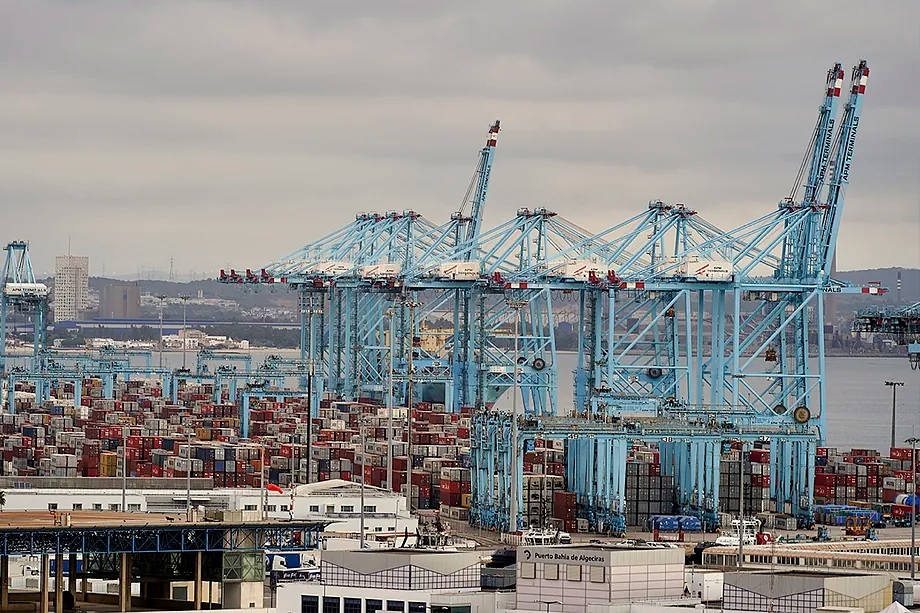From (the Residential) Versailles, they ran their own fruit empire. The sun never set on their domains, which ranged from Costa Rica to Valencia, and money flowed incessantly from across the Atlantic on ships loaded with tropical fruits and... cocaine. Their company, Abadix Fruits SL, was a gold mine, with a turnover that multiplied year after year and business ventures that extended into the real estate market.
Hidden in the small town of El Campello in Alicante (Spain), the owners of Abadix Fruits SL posed as a successful entrepreneurial couple importing bananas, mangos, avocados, yucca, and pineapples from Brazil, Panama, and Ecuador, when in reality, they were large-scale drug traffickers. So large that they allegedly even had Óscar Sánchez, head of the UDEF section of Economic Crimes and Money Laundering, on their payroll, who was arrested along with his partner. He was found to have stashed 20 million euros of allegedly illicit origin in his house in Alcalá de Henares, and another million in his office.
Sánchez was discreet, spoke little, and had a solid career within the National Police. But he also kept 8 million euros hidden within the walls of his house, 12 million in false ceiling compartments, and another million in his professional office. The investigation indicates that he facilitated the entry of drugs from Ecuador and provided guidance on how to evade police controls.
Miguel B. and Vilma Janet A., the couple behind Abadix, were fully integrated into the social life of the town and the province of Alicante. They even sponsored sports events, such as the City Race in the capital of Alicante last year.
However, their perfect cover began to crumble four years ago, as anti-drug experts from the the Spanish National Police noticed discrepancies. The first suspicions arose when it was discovered that despite the company's declared enormous volume of activity (and profits), they did not even have a warehouse for their merchandise.
The suspicions turned into evidence less than a month ago, on October 14, when inside one of the containers brought from South America by Miguel and Vilma Janet's company, 13,062 kilograms of cocaine were found, the largest seizure of this narcotic substance ever made in Spain and the second largest in all of Europe.
There were 11,000 drug pills in boxes identical to those of the bananas surrounding them, as a cover, inside the container.
A ship had unloaded it at the port of Algeciras (Cádiz), coming from Guayaquil (Ecuador), and the mobile scanner 'Medusa' owned by the Tax Agency at those facilities raised the alarm.
The discovery was not a coincidence, as explained by the officials of the operation - carried out jointly by the Surveillance Service of the Tax Agency and the National Police - but the result of a long investigation dating back four years, including about 200 inspections of containers imported by the front company at the Algeciras port.
Why was the operation disrupted now? Because investigators noticed that Abadix had stopped working with a wide range of suppliers it had been using for years and had started exclusively working with an Ecuadorian supplier with a criminal record related to drug trafficking.
During the time when Abadix's containers entered Spanish territory without apparent issues or suspicions, the company's executives grew confident and became less cautious in organizing their drug shipments. This led them to take the risk of a single container carrying over thirteen tons of drugs. That was their big mistake.
With the drugs seized, the operation led to the arrest of a third person linked to the drug business, Vilma Janet's sister, who is considered the organizer of the shipment and holds a 2% stake in Abadix. She was arrested in Illescas (Toledo) and is out on bail.
Those who have managed, for now, to escape are Miguel and Vilma, the married couple who own the front company and against whom the Court of Instruction 3 of Algeciras has issued a nationwide and international arrest warrant. There are suspicions that they may be connected to the powerful and well-known Los Balcanes clan.
Established on January 4, 2018, Abadix had already imported to Spain in 2021 over 900 containers (allegedly) loaded with tropical fruits. According to the Commercial Registry data, their revenue increased from just under 600,000 euros in 2021 to 5.6 million euros in 2023.
The port of Algeciras, through which four million containers pass annually, has become one of the major entry points for drugs into Europe, as warned by the Anti-Drug Prosecutor of Campo de Gibraltar (Cádiz), Macarena Arroyo, who points out that only "0.001%" of what arrives is intercepted.
The previous year, the Prosecutor's Office already noted the increase in drug trafficking through the Algeciras port, where, as Arroyo states, it is "impossible" to control all the merchandise being moved. "It worries us a lot," adds the prosecutor responsible for the fight against drug trafficking in this region of Cadiz, pointing to several factors behind it, such as overproduction after the pandemic hiatus and increased demand.
In the drug introduction process, she explains, criminal groups act as "cooperatives" that combine efforts and logistics for drug transportation, mainly from ports in Ecuador, Colombia, Panama, Costa Rica, or Brazil.
